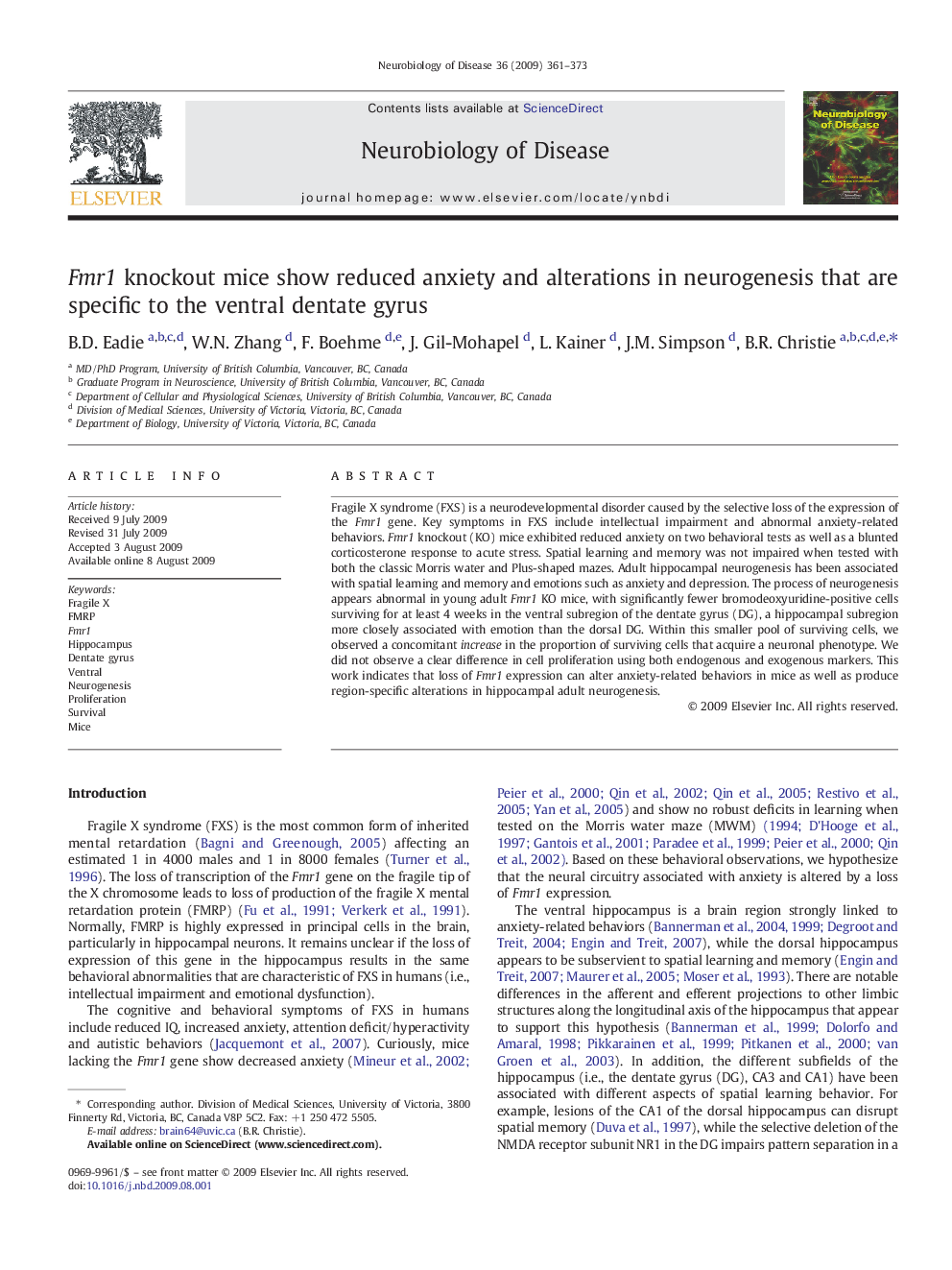| Article ID | Journal | Published Year | Pages | File Type |
|---|---|---|---|---|
| 3070044 | Neurobiology of Disease | 2009 | 13 Pages |
Fragile X syndrome (FXS) is a neurodevelopmental disorder caused by the selective loss of the expression of the Fmr1 gene. Key symptoms in FXS include intellectual impairment and abnormal anxiety-related behaviors. Fmr1 knockout (KO) mice exhibited reduced anxiety on two behavioral tests as well as a blunted corticosterone response to acute stress. Spatial learning and memory was not impaired when tested with both the classic Morris water and Plus-shaped mazes. Adult hippocampal neurogenesis has been associated with spatial learning and memory and emotions such as anxiety and depression. The process of neurogenesis appears abnormal in young adult Fmr1 KO mice, with significantly fewer bromodeoxyuridine-positive cells surviving for at least 4 weeks in the ventral subregion of the dentate gyrus (DG), a hippocampal subregion more closely associated with emotion than the dorsal DG. Within this smaller pool of surviving cells, we observed a concomitant increase in the proportion of surviving cells that acquire a neuronal phenotype. We did not observe a clear difference in cell proliferation using both endogenous and exogenous markers. This work indicates that loss of Fmr1 expression can alter anxiety-related behaviors in mice as well as produce region-specific alterations in hippocampal adult neurogenesis.
